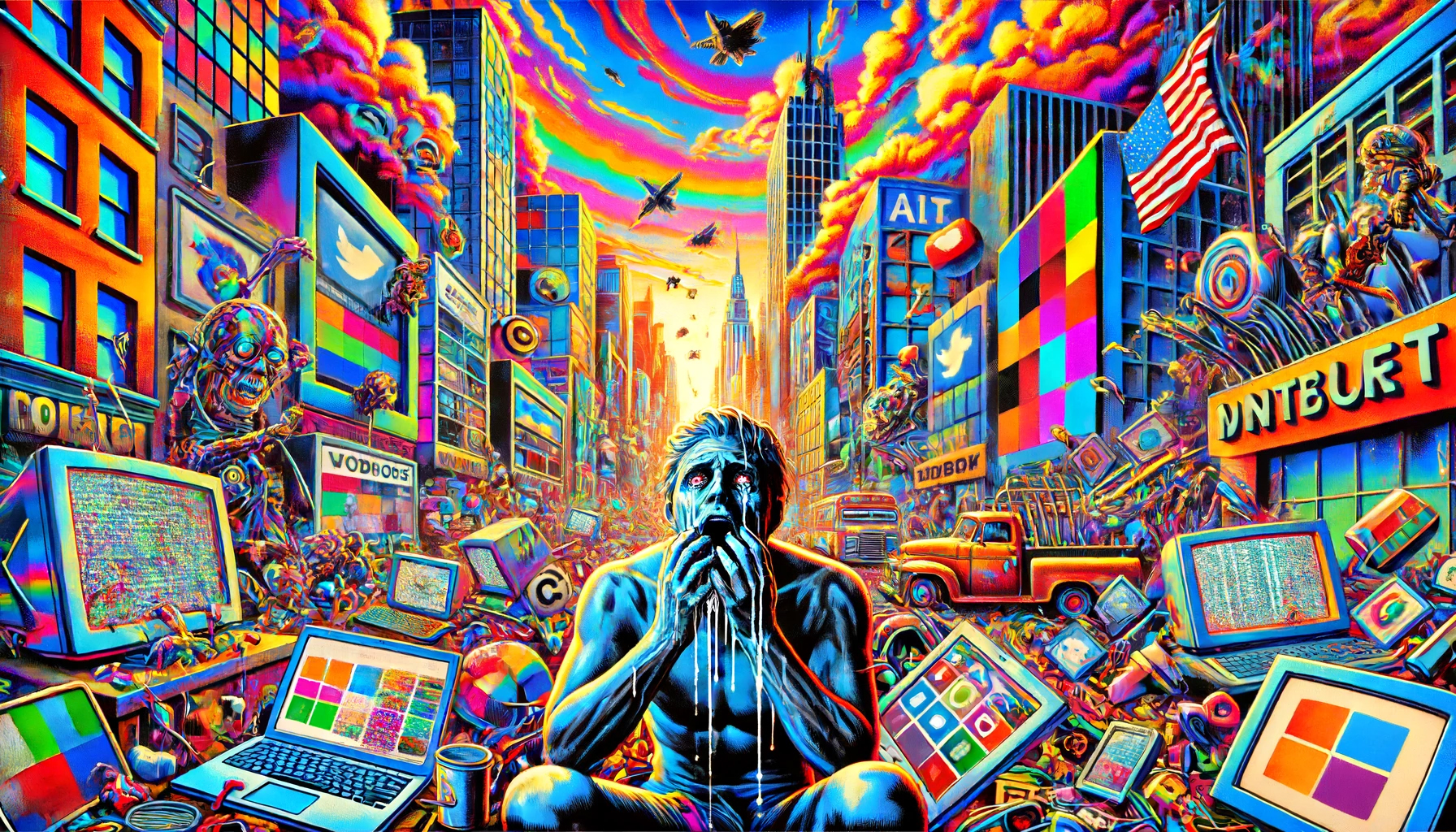I wouldn’t want to own shares in Squarespace right now.
At this week’s Apple keynote there were hints of the future… but if you looked carefully it wasn’t as cheerful as you might expect.
The demo I found most compelling was when an Apple drone asked Siri, “How long will it take to get to the restaurant?” and the OS figured out the answer by consulting email, text messages and maps to serve up an answer. This is good news for the restaurant (every day I wish I sold food or fixed toilets for a living), but by compressing these steps with AI we are going to decimate several revenue streams that were already under pressure.
One of the companies selling a product that is about to become irrelevant is Google. Platformer explained in their newsletter this week that Google’s AI product, the clumsily named Search Generative Experience (SGE), will soon reach 1 billion users. The aim of this new search engine is to serve up comprehensive answers, reducing the need for users to visit multiple web pages. Google’s plan is to bypass traditional web links almost entirely.
Basically, Google is going to saw off its own arm 127 hours style in order to save their business. AI is going to mean that services like ChatGPT will give you an informative experience without you needing to visit a website.
At the moment, Google offers the opposite: they give you access to the web and in return you resentfully glance at their ads. If the search giant doesn’t follow suit and aim to become an omnipresent assistant that helps you live your life then they are going to go the way of Netscape (RIP old friend).
I imagine the reason Google hasn’t moved quicker is because in the short-term this is going to savage their business and severely decrease how much we visit ad-supported pages. Predictions suggest web traffic from search engines could drop 25% by 2026. If you are a publisher then you better get an action plan together. My first instinct is that a publication’s “unique voice” or “point of view” is going to elevate it above the ChatGPT monotone, but what that does for sound journalism or objectivity probably isn’t great.
Read more in Daily Maverick: The many promises and numerous perils of AI in South Africa’s newsrooms
OpenAI’s new best friend The Atlantic wrote an article about the end of the web back in April. And they were concerned with how AI is going to flood the world with mediocre AI-generated content to such an extent that the web will be less of a wasteland and more of an overcrowded garbage dump.
Their worries were that content farms will churn out vast amounts of low-quality content that is optimised for search engines. But if search is going away anyway then maybe that won’t matter.
Also, what if we eventually get swamped with high-quality AI-generated content?
As a journalist and content creator, this is clearly bad news. If we thought monetisation was already difficult (every journalism conference for 10 years has involved moaning about how little publishers make from Google ads) it sounds like soon that will not even be an option.
But if I think selfishly as a user, I think the experience will be considerably better than what we have now. The hunt for news and information every day feels like I am skipping from disintegrating social media sites to a random selection of WhatsApp links and podcasts. The resistance from the public to this move is going to be practically zero.
Coding Corner (the gradual process of a journalist learning how to code)
I have always had a fascination with criminal justice reporting, but understand the huge amount of resources it takes. So, since getting into AI and coding I’ve wanted to look for ways to streamline that work. This is what I have been coding with Python this week…

You feed it legal cases and it gives you a verdict. Naturally, it still needs plenty of work, but I feel that this type of application is where AI is headed rather than the work of generating listicles that we have become so enthralled by.
If you’d like more info around what I am doing with Justice AI then get in touch.
What AI was used in creating this article?
Just the image (created with ChatGPT). But, I have discovered a site called Better Images of AI (thanks to Peter Deselaers) which is on a mission to depict AI in the media (and in newsletters like this one) with fewer “unhelpful” stereotypes. It’s worth checking out.
In the news
- OpenAI, in a glorious move of taking some responsibility, is reporting on propaganda that was created by using ChatGPT.
The company caught five networks (including players from Russia, China, Iran, and Israel) using their generative AI tools to create large volumes of social media comments in multiple languages. However, the underlying message to the public is to stay off Facebook and spend more time on ChatGPT.
- In outrage-at-the-water-cooler news, human rights activists are claiming that a popular AI training dataset is “stealing and weaponising” the faces of children without their knowledge or consent.
- If you are scrambling on the edges of trying to build apps with AI then the nagging problem is still that they get things “wrong” (they are prone to hallucinating). This is an interesting meditation on the problem. DM
Subscribe to Develop AI’s newsletter here.
Develop AI is an innovative company that reports on AI, provides training, mentoring and consulting on how to use AI and builds AI tools.





